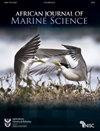Understanding the effects of climate change on Southern Ocean ecosystems
IF 1.4
4区 生物学
Q3 MARINE & FRESHWATER BIOLOGY
引用次数: 0
Abstract
AbstractUnderstanding the future of Southern Ocean ecosystems requires approaches at micro to macro scales. The Southern Ocean has experienced both top-down and bottom-up perturbations driven by man. The removal of whales and finfish was a top-down disruption, removing enormous levels of biomass of consumers and driving competitive release for other predators. In contrast, climate change is altering physical conditions in complex, interrelated ways likely to change primary-producer community structure, with bottom-up consequences for the efficiency of energy transfer to top predators, and for the biological pump. The physiological effects of increasing ocean temperatures on animal species are likely to be less important than three key physical changes: loss of sea ice, changes to water-column stability, and patterns of water transport; these will affect krill abundances, primary producer community structure, and prey availability to land-breeding predators, respectively. The Southern Ocean is vast and critically influenced by global teleconnections, with different regions already exhibiting different patterns of physical and biological change. Given the strong physical forcing of these ecosystems, many of the initial consequences of climate change will operate through direct physiological effects on the primary producers and indirect effects on the larger organisms. This will disrupt species interactions and drive new ecological relationships.Keywords: advective flowecosystem structurephytoplankton community structuresea icesub-Antarctic islandswater-column stability了解气候变化对南大洋生态系统的影响
摘要了解南大洋生态系统的未来需要从微观到宏观的尺度。南大洋经历了由人类驱动的自上而下和自下而上的扰动。鲸鱼和鳍鱼的消失是一种自上而下的破坏,消除了大量的消费者生物量,并推动了其他掠食者的竞争性释放。相比之下,气候变化正在以复杂、相互关联的方式改变自然条件,可能改变初级生产者的群落结构,对能量向顶级捕食者转移的效率和生物泵产生自下而上的影响。海洋温度升高对动物物种的生理影响可能不如三个关键的物理变化重要:海冰的损失、水柱稳定性的变化和水运模式;这将分别影响磷虾丰度、初级生产者群落结构和对陆地繁殖捕食者的猎物可得性。南大洋广阔,受到全球遥联系的严重影响,不同区域已经表现出不同的物理和生物变化模式。鉴于这些生态系统具有强大的物理强迫作用,气候变化的许多最初后果将通过对初级生产者的直接生理影响和对较大生物体的间接影响来发挥作用。这将破坏物种之间的相互作用,并推动新的生态关系。关键词:平流生态系统结构;浮游植物群落结构;海冰
本文章由计算机程序翻译,如有差异,请以英文原文为准。
求助全文
约1分钟内获得全文
求助全文
来源期刊

African Journal of Marine Science
生物-海洋与淡水生物学
CiteScore
2.60
自引率
16.70%
发文量
17
审稿时长
6-12 weeks
期刊介绍:
The African (formerly South African) Journal of Marine Science provides an international forum for the publication of original scientific contributions or critical reviews, involving oceanic, shelf or estuarine waters, inclusive of oceanography, studies of organisms and their habitats, and aquaculture. Papers on the conservation and management of living resources, relevant social science and governance, or new techniques, are all welcomed, as are those that integrate different disciplines. Priority will be given to rigorous, question-driven research, rather than descriptive research. Contributions from African waters, including the Southern Ocean, are particularly encouraged, although not to the exclusion of those from elsewhere that have relevance to the African context. Submissions may take the form of a paper or a short communication. The journal aims to achieve a balanced representation of subject areas but also publishes proceedings of symposia in dedicated issues, as well as guest-edited suites on thematic topics in regular issues.
 求助内容:
求助内容: 应助结果提醒方式:
应助结果提醒方式:


